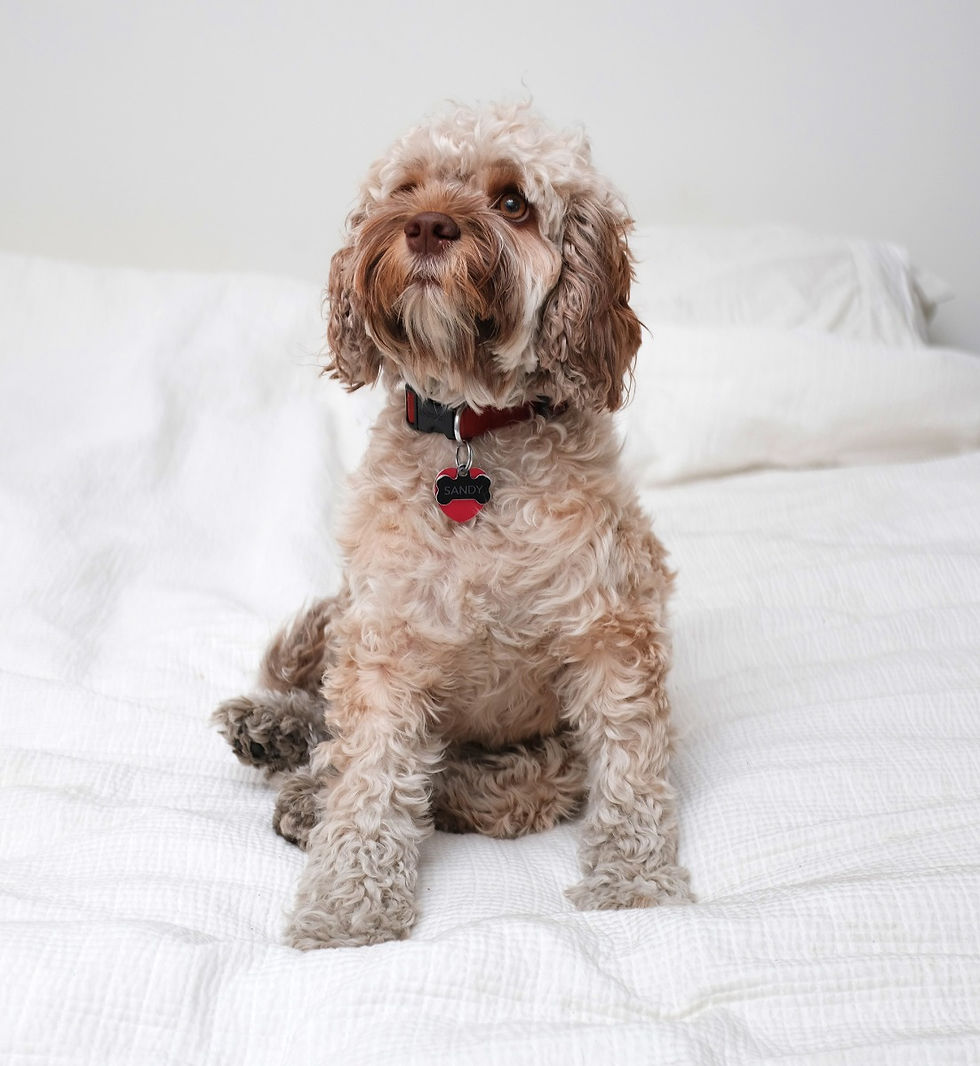7 Questions Answered About Kennel Cough by a Toronto Veterinarian
- Nicola Smith

- Nov 23, 2020
- 2 min read
Updated: Nov 16, 2022

It's that time of year where you probably are hearing about Kennel Cough if you have a dog. I have received numerous calls letting me know to be careful at individual parks or areas because there have been so many known breakouts. Whether it's a client or a friend, the topic of Kennel Cough seems to be a hot one.
I may be a Toronto dog walking expert, but I certainly am not an expert on this topic, which is why I took my questions to a licenced veterinarian and an expert I trust.
I spoke with Dr. James Young from Boardwalk Animal Hospital in the Beaches to ask some questions about Kennel Cough and what you should know.
1. What is Kennel Cough?
"Canine infectious respiratory disease (CIRD) describes an acute infection primarily involving the upper respiratory tract. It is one of the most common causes of acute respiratory disease in dogs Usually the cough starts rather suddenly and tends to be in younger dogs although any age can be affected."

2. How does a dog get Kennel Cough?
"Kennel Cough is transmitted via oronasal contact with aerosolized respiratory secretions, by direct dog-to-dog contact, and via contaminated fomites.1,7 Incubation period is typically 2-3 days, but can be up to 10 days depending on the pathogen. Pathophysiology varies with specific microorganisms; however, all organisms associated with CIRD cause upper respiratory tract abnormalities."
3. What are the symptoms of Kennel Cough?
"Clinical signs are typically mild. Paroxysmal coughing, sneezing, and oculonasal discharge may be present. A cough may be elicited on tracheal palpation. The cough may be high-pitched and hacking. Retching and gagging may occur at the end of the cough and be mistaken for something caught in the dog’s throat. I find dogs have quite the cough but are otherwise “ok”."

4. How long is a dog contagious?
"Most affected dogs recover in approximately 10 days."
5. Can dogs get Kennel Cough from surface transmission?
"My impression is this mode of transmission is not very common. Droplet transmission is, by far, the most important."
6. What are the treatments?
"Doxycycline (for 10 days) is considered to be a good first choice because of its efficacy against Mycoplasma spp. and B. bronchiseptica. However, many cases of CIRD are due to viral infections; therefore, antibiotics are ineffective for the underlying cause"
Other Treatments
"Prednisone , Cough suppressants, and nebulization therapy are additional, but I have never had a case that required these interventions. Certainly not allowing direct contact with other dogs will help reduce the spread of Kennel cough."

7. Let's talk about vaccines and what you recommend:
"Vaccinated dogs can still become infected, transmit, and shed microorganisms, as well as develop clinical signs. My impression is this vaccine may not provide satisfactory results, although I tend to vaccinate dogs that will be entering a kennel situation."
Thanks for reading our blog. If you think your dog may have Kennel Cough be sure to visit a licensed veterinarian.



Comments